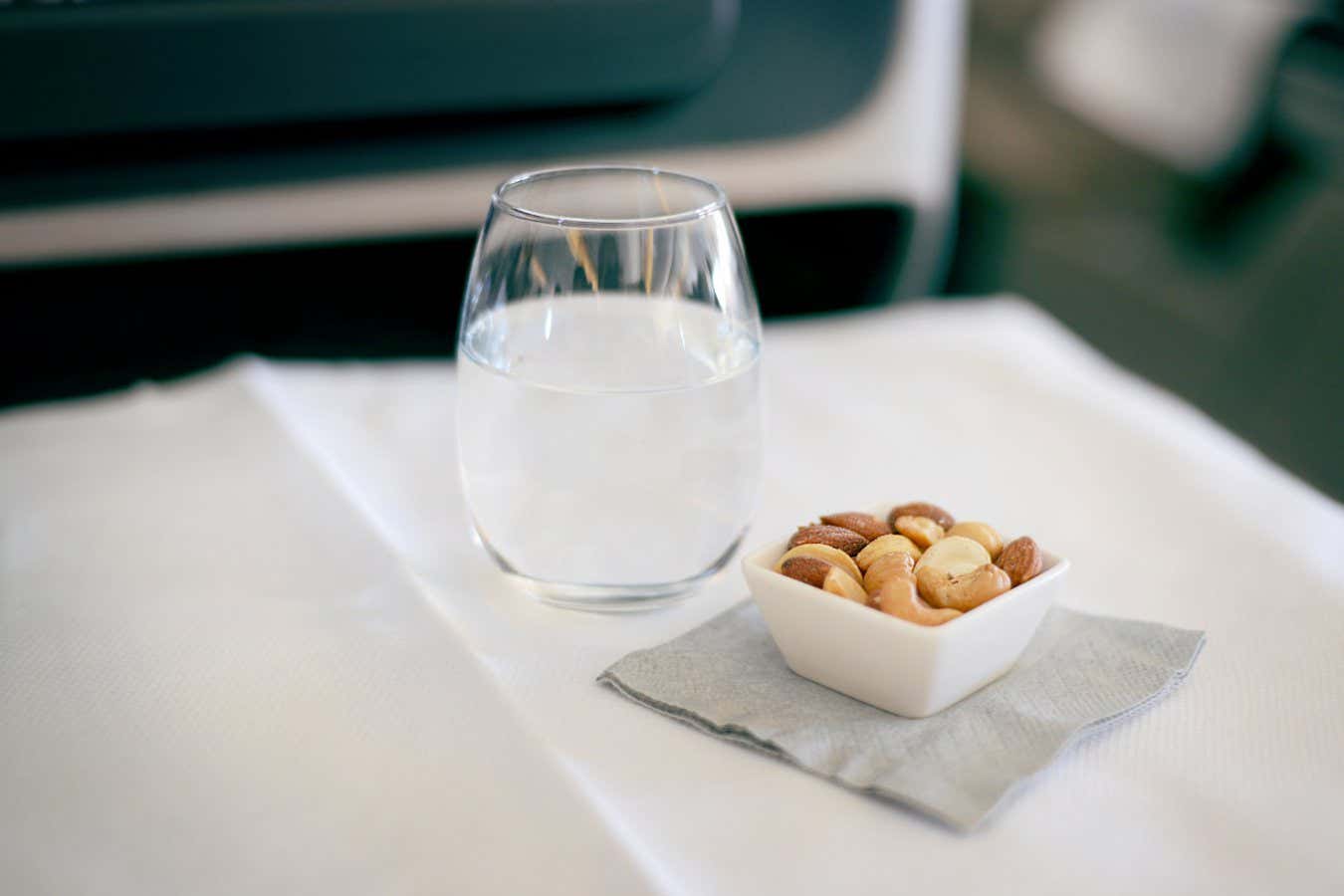Filters on commercial flights seem to stop peanut particles from circulating around aircraft, making the risk of a serious allergic reaction from inhaling the allergens very low
By Carissa Wong
15 October 2024
Some airlines have stopped serving peanuts on board over allergy fears
Cheryl Chan/Getty Images
There is no strong evidence that people with peanut allergies are at risk of a severe reaction from others eating peanuts and the allergens circulating through the air while on board a plane. While peanuts are technically legumes, it is thought the findings will also apply to nuts and other foods that people are commonly allergic to.
People with food allergies may experience symptoms such as rashes, nausea and breathlessness after being exposed to allergens through eating, skin contact or inhalation. In severe cases, this can cause a life-threatening reaction called anaphylaxis, which can lead to swelling of the throat, dizziness and more serious breathing difficulties.
Read more
The new drugs preventing allergic reactions to peanuts and other foods
Advertisement
Some airlines have banned the sale of nuts on flights and their staff make announcements asking passengers not to eat them if they know someone on board has an allergy.
To explore the evidence behind the inhalation risk, Paul Turner at Imperial College London and his colleagues focused on peanuts, reviewing the results of five studies.
One study looked for peanut particles in air samples during a commercial flight where the snack was being served. The researchers found none in nearly all the samples they collected. That is because these aircraft have filters that remove peanut particles in the air before they spread through the cabin, says Turner.
